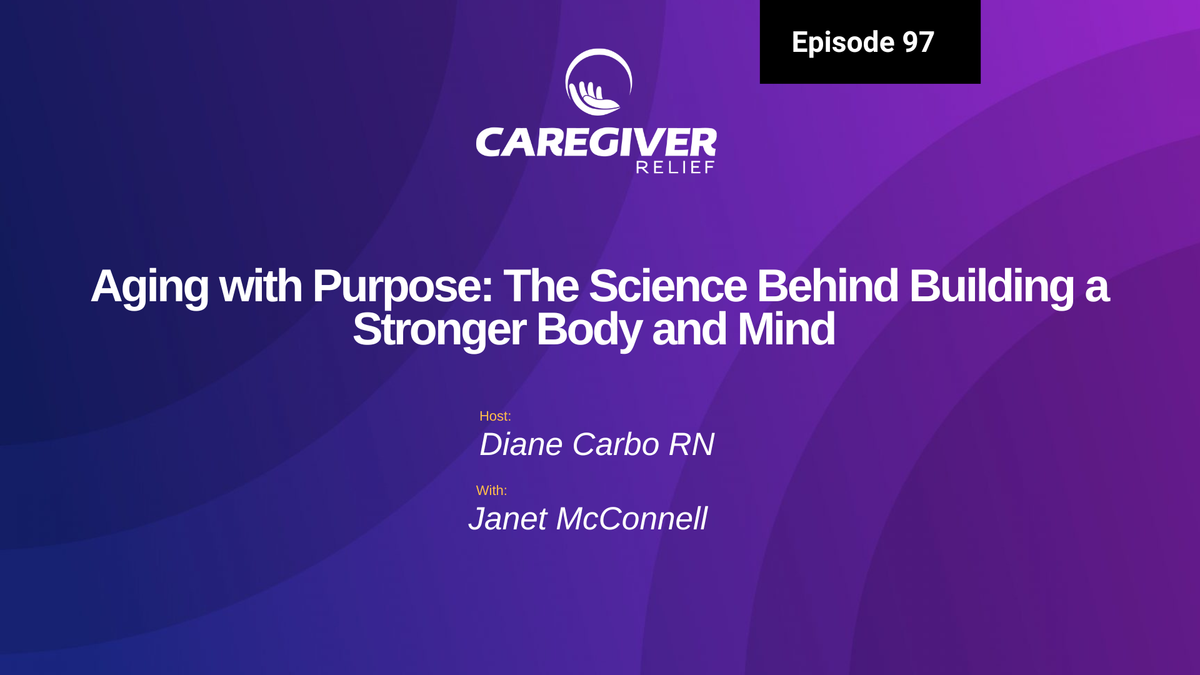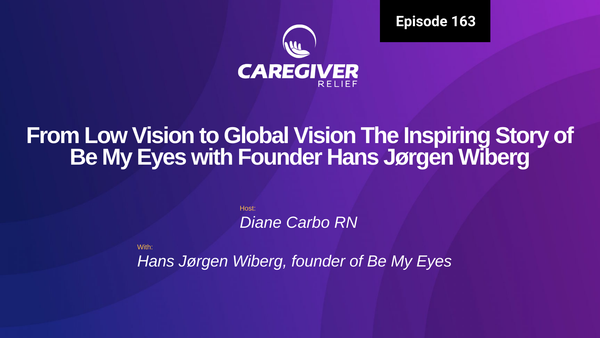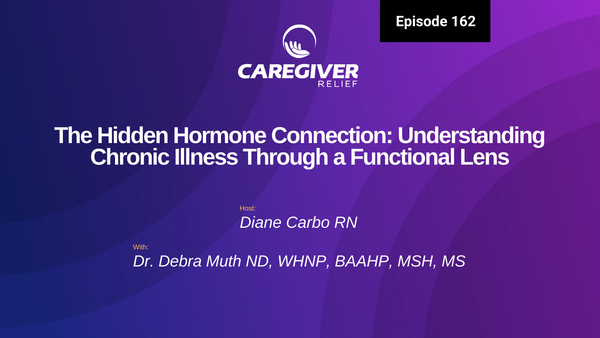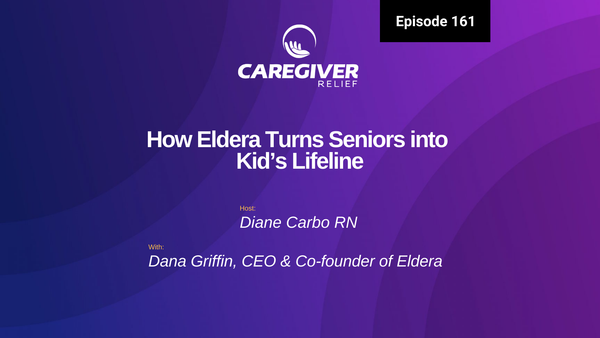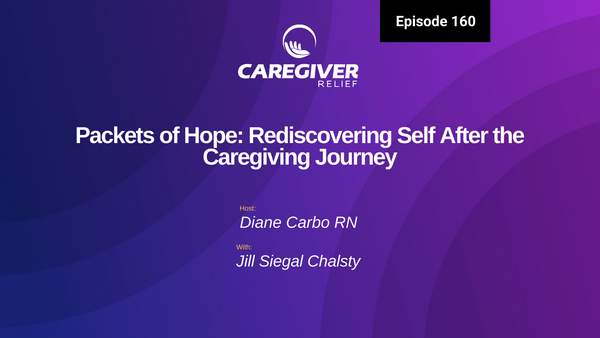Aging, Depression, and the Power of ECT: A Conversation with Dr. Joshua Bess - Episode 119
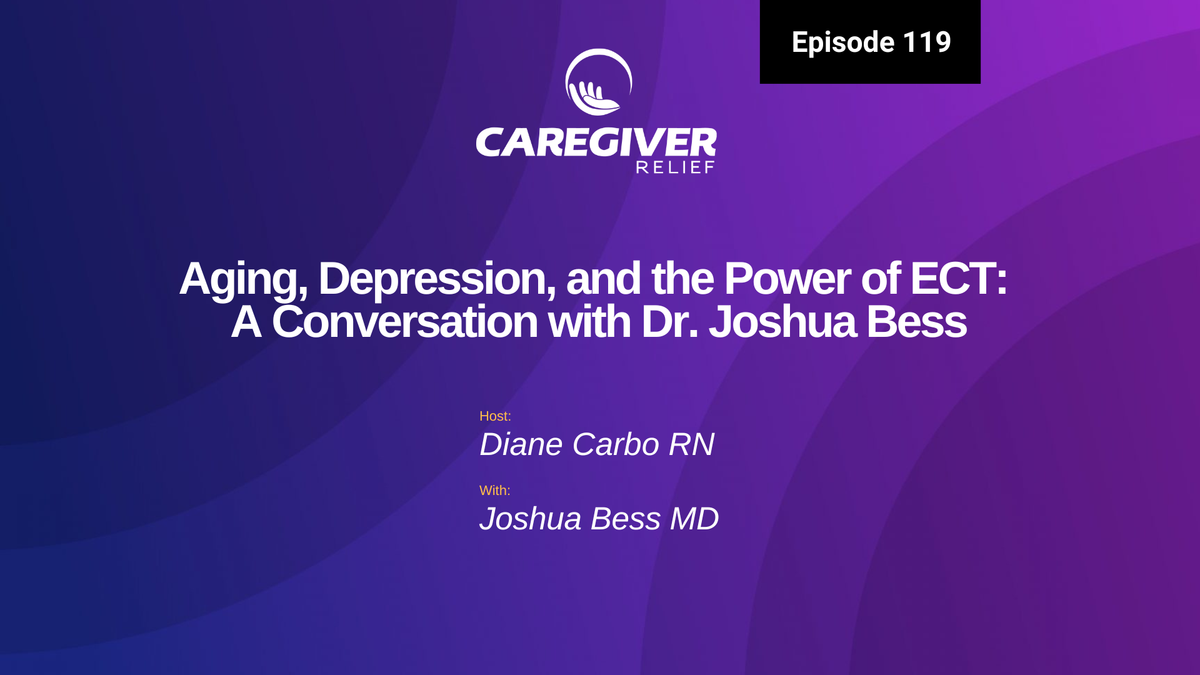
Watching an aging loved one battle severe, treatment-resistant depression can be a painful and isolating experience. When medications and therapies seem to fail, it's easy for caregivers to feel like they're running out of options. But what if there was a powerful, often misunderstood treatment that could offer real hope?
In this crucial episode of the Caregiver Relief Podcast, host Diane Carbo sits down with Dr. Joshua Bess, a nationally respected psychiatrist and the medical director of Seattle NTC. They tackle a topic shrouded in stigma: Electroconvulsive Therapy (ECT).
Dr. Bess dispels the outdated myths, explains what modern ECT is truly like, and shares why it can be an incredibly effective and safe option for older adults when nothing else has worked. This conversation is a must-listen for any caregiver searching for answers and hope.

Here's a look at the essential topics Dr. Bess and Diane cover in their conversation:
- A Journey to Psychiatry 👨⚕️: Dr. Bess shares what drew him from rural Indiana to interventional psychiatry, starting with a desire to offer "human kindness" to those in need.
- Modern ECT vs. The Myths 🎬: Forget the scary scenes from movies! Dr. Bess explains how today's ECT is a safe, routine medical procedure performed under general anesthesia and with muscle paralytics. Family members who observe it for the first time often find it "pretty mundane".
- Why is ECT So Effective in Seniors? 🤔: While the exact reason isn't known, Dr. Bess discusses the leading theories. He notes that certain types of depression common in advanced age, like psychotic depression, are "exquisitely responsive to ECT".
- The Truth About Memory Loss ❓: This is the biggest concern for many families. Dr. Bess breaks down the three main types of memory issues that can occur:
- Temporary Confusion: Lasting for about 15-20 minutes right after the procedure, which happens to everyone.
- Trouble Forming New Memories: Difficulty remembering day-to-day events during the course of treatment. This effect generally goes away once the treatment series is complete.
- Forgetting Past Events: The most feared side effect, known as retrograde amnesia, is not as common as portrayed. It can create "Swiss cheese" gaps in memory but typically doesn't affect core, personal life events or identities.
- When is ECT the Right Choice? ✅: Dr. Bess typically recommends ECT in two main scenarios: for patients who fit a profile known to respond well (like those with psychotic depression or catatonia) or for those who have tried several other interventions without success.
- What a Treatment Course Looks Like 🗓️: An initial "index" course usually involves three treatments per week for about three to four weeks. After a successful course, some patients may continue with "maintenance ECT" (e.g., once a month) to prevent relapse.
- Medical Safety and Clearance ❤️: Learn how doctors determine if a senior is healthy enough for ECT. It involves a process similar to pre-operative clearance for any surgery, focusing on optimizing cardiac, neurologic, and respiratory health.
- Insurance & Medicare Coverage 💵: Good news! Dr. Bess confirms that ECT is "almost universally" covered by insurance and Medicare, having been "grandfathered in" to the system.
- Hope for the Future ☀️: The field of interventional psychiatry is growing, with more options like TMS and ketamine becoming available and ongoing research aimed at making treatments even more effective and less invasive.
This episode is an invaluable resource for understanding a treatment that could change—or save—a life. If you're feeling lost in the face of a loved one's severe depression, Dr. Bess's compassionate and clear explanations will provide both knowledge and hope.
Find out more about Dr. Bess and his work at Seattle NTC.
To our incredible community of caregivers: You are the heart of it all. Please remember to be gentle with yourself and practice self-care every day. You are worth it. ❤️
Caring for a loved one can be overwhelming — but you're not alone. If you have questions, big or small, our expert team is here to help.
👉 Click here to Ask the Expert
Our Resource section can help you find the information and tools that you need. We have courses, videos, checklists, guidebooks, cheat sheets, how-to guides and more.
You can get started by clicking on the link below. We know that taking care of a loved one is hard work, but with our help you can get the support that you need.
Click here to go to Resource Section now!
You might also like this article:

